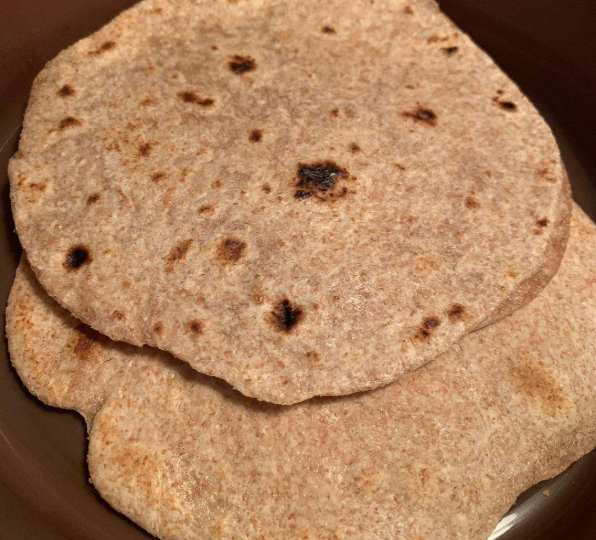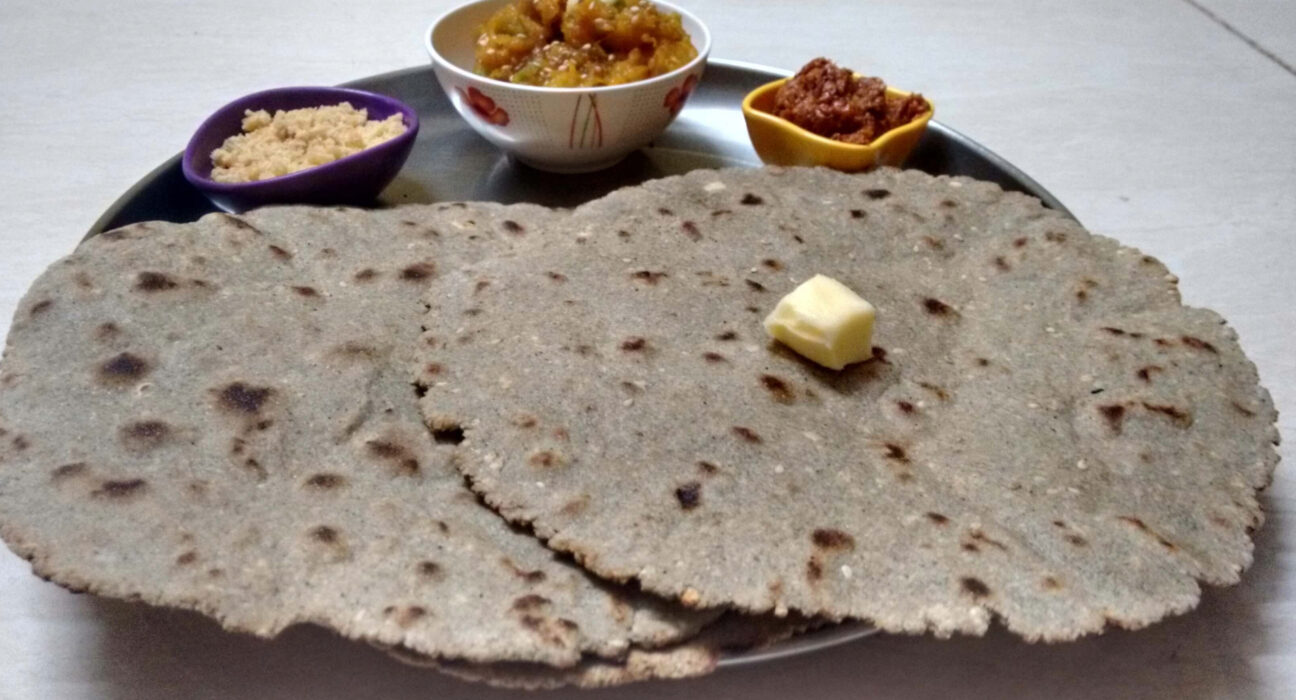Introduction:
Selecting meals that will not only keep us warm but also provide our bodies with vital nutrients is crucial as the winter chill descends. Pearl millet, or bajra, is a versatile and nutrient-dense grain that has long been a mainstay in Indian cooking. This blog post will discuss the advantages of including bajra in your winter diet and how it can keep you warm and well in the cold.
1. Nutrient-Rich Superfood
Bajra, also known as pearl millet, emerges as a nutritional powerhouse, offering a plethora of essential nutrients that contribute to overall health and well-being. Packed with complex carbohydrates, dietary fiber, protein, vitamins, and minerals, bajra stands out as a nutrient-rich superfood that can provide a steady release of energy and keep you feeling full and satisfied for longer periods, making it an ideal choice for winter meals.
One of the key nutritional attributes of bajra is its high content of complex carbohydrates, which serve as a primary source of energy for the body. These carbohydrates are slowly digested and absorbed, resulting in a gradual release of glucose into the bloodstream. As a result, bajra provides sustained energy levels, helping to fuel your body throughout the day and maintain optimal performance.
In addition to carbohydrates, bajra is rich in dietary fiber, which plays a crucial role in supporting digestive health and promoting feelings of fullness and satiety. The fiber content in bajra helps regulate bowel movements, prevent constipation, and support a healthy gut microbiome. By slowing down the digestion process, fiber also helps stabilize blood sugar levels, reducing the risk of energy crashes and sugar cravings.
Furthermore, bajra is a good source of plant-based protein, making it an excellent option for vegetarians and vegans looking to meet their protein needs. Protein is essential for muscle repair and growth, immune function, and hormone production, making bajra a valuable addition to a balanced diet.
In terms of micronutrients, bajra is rich in vitamins and minerals, including iron, magnesium, phosphorus, and zinc. Iron is essential for oxygen transport in the body, while magnesium plays a role in muscle function and relaxation. Phosphorus contributes to bone health, and zinc supports immune function and wound healing.
2. Boosts Immunity
Bajra, renowned for its nutritional richness, emerges as a formidable ally in bolstering the immune system, particularly during the winter months when the body’s defenses may be challenged by colds, flu, and other seasonal illnesses. This humble grain is packed with a wealth of vitamins and minerals, including zinc, magnesium, and iron, all of which play pivotal roles in supporting immune function and maintaining overall health and well-being.
Zinc, a micronutrient abundantly found in bajra, is renowned for its immune-boosting properties. This essential mineral plays a crucial role in numerous immune processes, including the development and function of immune cells, the production of antibodies, and the regulation of inflammatory responses. By ensuring adequate zinc intake, individuals can enhance their body’s ability to ward off infections and combat pathogens, reducing the risk of falling prey to winter illnesses.
Additionally, bajra is a rich source of magnesium, another vital nutrient with profound effects on immune function. Magnesium is involved in various immune-related processes, including the activation of immune cells and the regulation of inflammation. Adequate magnesium levels are essential for maintaining a balanced immune response and supporting overall immune health. By incorporating bajra into their diet, individuals can optimize their magnesium intake and strengthen their body’s natural defenses against seasonal threats.
Iron, yet another essential nutrient found in bajra, plays a critical role in immune function by supporting the proliferation and activity of immune cells, such as lymphocytes and macrophages. Iron deficiency can impair immune function and increase susceptibility to infections, making it crucial to maintain adequate iron levels, especially during the winter months when immune challenges are heightened.
3. Supports Digestive Health
Bajra, a nutrient-dense grain cherished for its versatility and nutritional benefits, emerges as a formidable supporter of digestive health, particularly during the winter season when dietary choices can impact gut function. Central to bajra’s digestive prowess is its high fiber content, which plays a pivotal role in promoting healthy digestion, preventing constipation, and supporting overall gut health.
Fiber, a non-digestible carbohydrate found abundantly in bajra, acts as nature’s broom within the digestive tract, facilitating the movement of food through the gastrointestinal system and promoting regularity. By adding bulk to stool and softening its consistency, dietary fiber helps prevent constipation and alleviates digestive discomfort, ensuring that waste is efficiently eliminated from the body.
Moreover, the soluble fiber present in bajra forms a gel-like substance in the digestive tract, which helps regulate bowel movements and promotes optimal gut function. Soluble fiber acts as a prebiotic, nourishing beneficial gut bacteria and supporting the growth of a healthy microbiome. A thriving gut microbiota is essential for digestive health, as it contributes to nutrient absorption, immune function, and the production of short-chain fatty acids that nourish the cells lining the colon.
By including bajra in your winter diet, you can provide your digestive system with a steady supply of fiber, ensuring smooth and efficient digestion. Whether enjoyed as a comforting porridge, wholesome roti, or incorporated into hearty soups and stews, bajra offers a delicious and nutritious addition to meals that can help alleviate digestive discomfort and promote overall gut health.
4. Heart Health Benefits
Bajra, a traditional grain with a remarkable nutritional profile, emerges as a potent ally in promoting heart health and reducing the risk of cardiovascular disease. Its rich content of antioxidants and heart-healthy fats, including monounsaturated and polyunsaturated fats, underscores its potential to support cardiovascular wellness and maintain healthy blood pressure levels.
Antioxidants, abundant in bajra, play a pivotal role in protecting the heart and blood vessels from oxidative stress and inflammation, two key contributors to the development of cardiovascular disease. These powerful compounds scavenge free radicals, unstable molecules that can damage cells and tissues, thereby reducing the risk of atherosclerosis, coronary artery disease, and other cardiovascular conditions. By incorporating bajra into your diet, you can harness the antioxidant properties of this grain to fortify your heart and vascular system against oxidative damage.
Furthermore, the presence of heart-healthy fats in bajra, particularly monounsaturated and polyunsaturated fats, contributes to its cardioprotective effects. These beneficial fats have been shown to help lower LDL (bad) cholesterol levels while increasing HDL (good) cholesterol levels, thereby improving the overall lipid profile and reducing the risk of atherosclerosis and heart disease. By swapping out less healthy fats with those found in bajra, individuals can make significant strides in promoting heart health and safeguarding against cardiovascular risk factors.
Moreover, the fiber content in bajra further augments its cardiovascular benefits by supporting optimal cholesterol levels and enhancing blood sugar regulation. Dietary fiber helps reduce LDL cholesterol levels by binding to cholesterol in the digestive tract and promoting its excretion from the body, thereby lowering the risk of plaque buildup in the arteries and subsequent heart-related complications. Additionally, fiber aids in maintaining stable blood sugar levels, which is crucial for reducing the risk of diabetes, a significant risk factor for heart disease.
5. Provides Warmth and Sustained Energy
Bajra, revered in Ayurveda for its warming properties, emerges as a culinary gem perfectly suited for winter consumption. This ancient grain, cherished for its dense nutritional profile and therapeutic qualities, offers a multitude of benefits that promote warmth and sustained energy, making it an indispensable addition to winter meals.
In Ayurvedic tradition, foods are classified based on their inherent qualities, including their ability to generate heat or warmth within the body. Bajra is categorized as a warming food, which means it has the unique capacity to kindle the digestive fire (agni) and generate internal heat, thereby helping to counteract the cold and dampness associated with the winter season. By incorporating bajra into your diet during the colder months, you can harness its warming properties to maintain internal balance and vitality despite external environmental conditions.
Beyond its warming nature, bajra boasts a dense nutritional profile that provides sustained energy to fuel your body throughout the day. This ancient grain is rich in complex carbohydrates, dietary fiber, protein, vitamins, and minerals, all of which contribute to its ability to deliver long-lasting energy and support overall well-being. The complex carbohydrates in bajra are slowly digested and absorbed, resulting in a gradual release of glucose into the bloodstream, which helps sustain energy levels and prevent fluctuations in blood sugar.
Additionally, the dietary fiber present in bajra promotes feelings of fullness and satiety, preventing energy crashes and keeping hunger at bay. Fiber also supports digestive health by regulating bowel movements and promoting a healthy gut microbiome, further enhancing overall vitality and well-being.
Furthermore, bajra is a good source of essential vitamins and minerals, including iron, magnesium, and B vitamins, which play key roles in energy metabolism and cellular function. These micronutrients work synergistically to support optimal energy production, ensuring that your body has the fuel it needs to thrive, even during the coldest winter days.


Conclusion:
With its nutrient-rich profile, immune-boosting properties, and warming qualities, bajra is a perfect addition to your winter diet. Whether enjoyed in rotis, khichdi, porridge, soups, or other delicious dishes, incorporating bajra into your meals can help you stay warm, healthy, and satisfied throughout the cold season. Embrace the goodness of bajra and make it a staple in your winter kitchen for nourishment and comfort.












